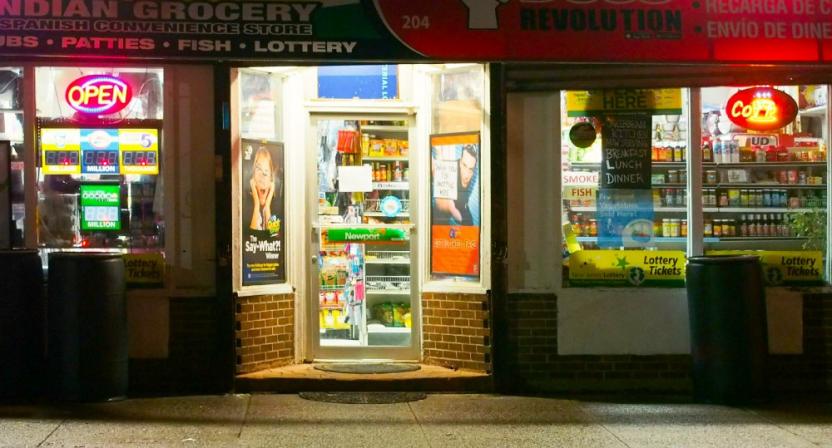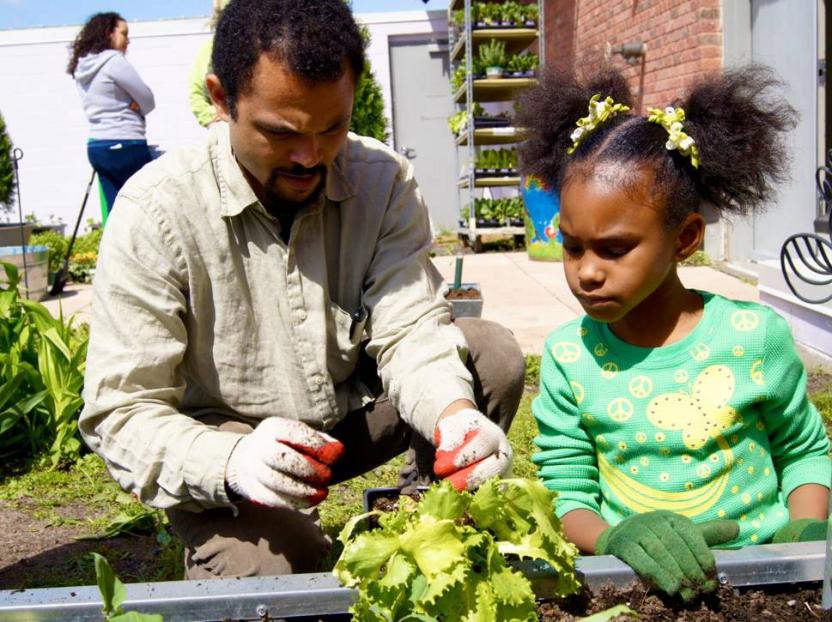Nourishing Health Equity: A New Jersey Health Care System Tackles Food Insecurity
Prioritizing Health Equity
Living conditions have a lot to do with health. Communities without access to healthy foods will invariably have greater health care needs than communities that can easily meet their nutritional requirements. A population saddled with discrimination requires more resources than populations without those obstacles.
The link between inequitable circumstances and unequal health outcomes may seem clear to today’s public health professionals, but until recent decades, health equity generally wasn’t a significant consideration in health care or public health policymaking.
“Health equity ensures that everyone, no matter who they are, receives access to the services and supports they need,” says Michellene Davis, executive vice president and chief corporate affairs officer at RWJBarnabas Health System (RWJBH).
“In vulnerable communities that have traditionally been underserved, treatment may have been equal, but equal treatment is not always equitable treatment.”
As New Jersey’s largest and most comprehensive health care system, RWJBarnabas Health provides treatment and services to more than 5 million people each year. In 2017, RWJBarnabas launched a Social Impact and Community Investment (SICI) practice aimed at achieving socially engaged, economically thriving communities throughout the state.
The SICI practice quickly identified food insecurity as a significant driver of health inequities in the region.
With a focus on ensuring health equity, the SICI practice spearheads collaborative social impact initiatives. These innovative initiatives address the underlying social, economic, and environmental conditions that generate health outcome disparities between different New Jersey communities.
“The SICI practice is designed to work in tandem with the communities we serve,” says Davis. “It takes all of us to provide the services and sustainable system changes we need to move the needle and ensure improved outcomes.”
Healthy Food, Healthy Communities
One area of the SICI practice that has seen quick progress is food security. Working with the Greater Newark Community Advisory Board (GNCAB), a multidisciplinary group of Newark stakeholders, and using data from its community needs assessment, the SICI practice quickly identified food insecurity as a significant driver of health inequities in the region.
In Essex County — where Newark is the county seat — 17% of the population are food insecure, compared with 10% of individuals who are food insecure in the state of New Jersey as a whole. In Newark’s South Ward alone, more than 5,000 residents receive federal Supplemental Nutrition Assistance Program (SNAP) benefits, commonly known as food stamps.
The film Food for Thought investigates the community’s food system from the perspective of young Newark residents, ages 12–21.
A first step for the SICI practice was evaluating the scope of the problem, as well as raising the profile and deepening the understanding of food insecurity as a public concern. After exploring several strategic options, the practice and its community partners decided to focus on improving access to healthy food for low-income residents.
“With food insecurity affecting so many New Jerseyans and strong evidence that food insecurity is directly linked to health and education outcomes, we realized we needed to expand our programmatic and policy efforts,” says Sarah Lechner, senior vice president, policy development and government affairs at RWJBH.
“By streamlining access to important benefit programs such as SNAP and WIC, we can exponentially increase the impact of our collective work.”
As part of the larger SICI effort to raise public awareness about food insecurity, the GNCAB produced a documentary film chronicling food insecurity in Newark. The film, Food for Thought: The Path to Food Security in Newark, NJ, investigates the community’s food system from the perspective of young Newark residents, ages 12–21, from area schools and local organizations. Food for Thought highlights community-based assets and explores ideas on how to transform the city’s existing systems, structures, and policies to enhance access to healthy, affordable food. In addition to a citywide premiere, 8 convenings were held throughout the city’s 5 wards, focusing on diverse segments of the community, including seniors, youth, and clergy, among others. These convenings were critical to the SICI practice’s efforts to understand the community’s needs and desires.
One organization featured in the film is Newark Science and Sustainability, Inc. (Newark SAS), a community-driven nonprofit organization that increases awareness of environmental, ecological, and wellness issues through educational programs and hands-on activities.
“We promote fresh produce distribution in urban communities and work to improve residents’ access to healthy food,” explains Tobias Fox, Newark SAS’s founder and managing director. “Our ultimate goal is to empower residents to become actively involved in reshaping their environment while taking back their health and growing our local food system.”
Leveraging Knowledge
The SICI practice is not RWJBarnabas Health’s first foray into improving health equity through a food security approach. Two of the health care system’s hospitals, Newark Beth Israel Medical Center (NBIMC) and Children’s Hospital of New Jersey, border The Beth Greenhouse — a sustainable, hydroponic greenhouse facility that produces more than 5,000 pounds of fresh, locally grown produce annually. The Beth Greenhouse also provides education on healthy eating as well as job training opportunities.
Augmenting the food systems work already in place, ChangeLab Solutions has partnered with the SICI practice, GNCAB, and their community partners to help identify policy options for improving local food systems and addressing food insecurity issues. This collaboration with ChangeLab Solutions leveraged knowledge gained from Food for Thought, guidance provided by the community convenings, and the SICI practice’s own in-house expertise, to develop policy ideas to accelerate changes in New Jersey’s existing food system.
On 2 recent trips to Newark, Manel Kappagoda and Katie Michel, staff attorneys at ChangeLab Solutions, witnessed the city’s thriving community food system in action, including urban agriculture plots, farmers markets, and community gardens. In addition, they gave a presentation on food security policy to GNCAB staff and met with city officials to further tailor the technical assistance and resources that ChangeLab Solutions is developing with the Newark stakeholders.
“Newark’s stakeholders are renewing their local food system by relying on their own expertise and understanding,” Kappagoda says. “They have a clear vision of what they want. We’re just helping them get to their goals faster.”
“The work that RWJBH and the GNCAB have accomplished with ChangeLab Solutions is just the beginning,” says Davis. “As we work to address food insecurity, health equity, and other SICI priorities, RWJBH and NBIMC are proactively making our community healthier.”
“We’re looking to serve as a model for other communities with similar issues,” she adds.
For more information, see the work of RWJBarnabas Health’s Social Impact and Community Investment (SICI) practice.
1/30/2019
Photo Courtesy of Redwood Heights School Garden OUSD


